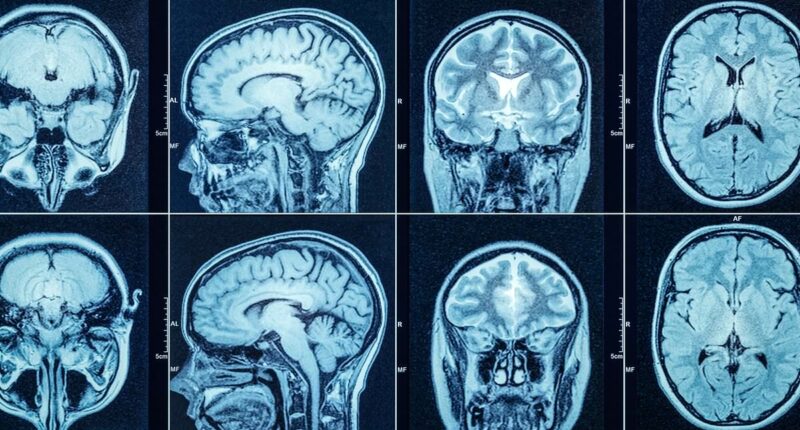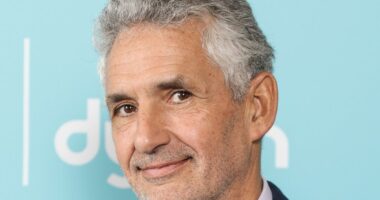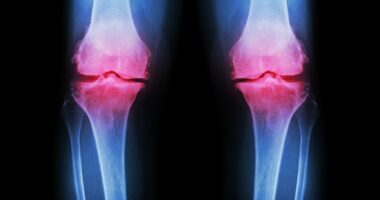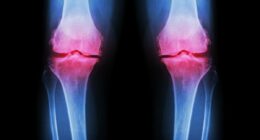Share this @internewscast.com
A cure for Huntington’s disease could be in the pipeline following the results of a groundbreaking new trial.
For the first time, scientists have been able to slow the cruel neurodegenerative disease by up to 75 per cent in patients.
According to experts, the improvement patients typically see in one year would now take only four years post-treatment, offering them potentially decades of high-quality life.
The results, hailed as ‘spectacular’ saw 29 patients given a type of gene therapy during 12 to 18 hours of delicate brain surgery.
Of those involved, one who was medically retired has now returned to work. Others are still walking despite being expected to need a wheelchair.
Professor Sarah Tabrizi, who directs the University College London Huntington’s Disease Centre and participated in the research, expressed to the BBC: ‘We never anticipated a 75 percent reduction in clinical decline.’
Professor Ed Wild, a neurologist at the National Hospital for Neurology and Neurosurgery at University College Hospital London, mentioned: ‘This is the breakthrough we’ve been hoping for.’
He continued, ‘The likelihood of experiencing a result this monumental seemed slim, so realizing it’s both achievable and extraordinarily impactful is immensely gratifying, and words can’t fully capture the sentiment.’

For the first time, scientists have been able to slow the the cruel neurodegenerative disease by up to 75 per cent in patients
Huntington’s disease is an inherited condition impacting the central nervous system, leading to uncontrolled movements, speech difficulties, and memory impairment.
On average, patients live for between 10 and 20 years after their diagnosis. The NHS says there is currently no way to stop it getting worse.
The condition, which affects 8,500 adults in the UK and around 30,000 in the US, occurs as a result of a fault in the huntingtin gene.
This leads to a build-up of the mutant huntingtin protein in neurons, causing them to die and triggering the devastating symptoms.
For years, scientists have endeavored to decrease protein levels without also eliminating the wild types, crucial for maintaining brain health.
But until now, researchers had struggled to make headway.
The new therapy developed by biotech company uniQure, uses cutting edge genetic medicine combining gene therapy and gene silencing technologies.
Dubbed AMT-130, it is made up of a harmless virus packaged with genetic material that has been altered to contain a specific sequence of DNA.
It is infused into the brain using MRI scanning and takes roughly 12 to 18 hours of neurosurgery.
The virus then delivers new pieces of the DNA inside brain cells, triggering cells to produce microRNA—small fragments of genetic material.
These interact with messenger RNA, resulting in lower levels of mutant huntingtin in the brain.
Results from the trial have been released in a statement by the company uniQure, but have not yet been published in full.
Over a follow-up of three years, there was a 75 per cent slowing of the disease on average, the data showed.
Levels of neurofilaments in spinal fluid—a clear sign of brain cells dying—should have increased by a third if the disease continued to progress.
But the trial also found levels were lower after three years than at the start of the trial.
















